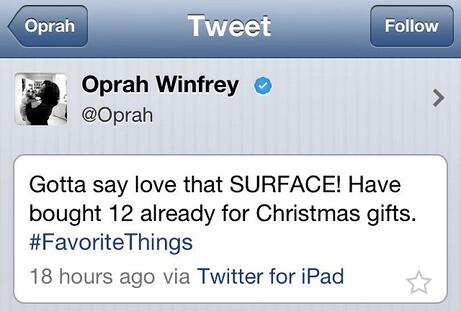Customers tend to feel more obligated to purchase from someone they trust, relate to, or idolize from the standpoint of a buyer.
That is why celebrity endorsements work so well with new products. Celebrities may frequently encourage buyers to click “Buy” when they would otherwise hesitate.
Furthermore, celebrity endorsements can be extremely profitable. According to a recent study, celebrity endorsement ads on social media can boost a company’s sales by an average of 4% when compared to its competitors. However, while it is a terrific way to develop your business, it can also be costly and, in certain situations, unsafe. These setbacks are particularly difficult for small firms and start-ups. So, how do you get your goods into the hands of a celebrity when you don’t have a big brand? Let’s find out with some celebrity endorsement examples.
Celebrity Endorsements
Celebrity endorsements are a marketing approach that allows companies of all sizes to utilize a celebrity or influencer as a spokesperson to help promote their brand, product, or services. Celebrities can utilize their celebrity and status to bring a product or service to the attention of a new or larger audience.
How to Obtain Celebrity Endorsement for your Products
Celebrity endorsements nowadays appear far different than they did in the past.
Before the advent of social media, A-list celebrities were utilized to endorse brands through TV commercials, print adverts, and other traditional marketing methods — like Justin Timberlake’s 2003 McDonald’s marketing campaign.
Although celebrities could frequently attract a large audience, the relationship between the endorser and the brand was frequently at best shaky.
Today’s advertising is very different, with a greater emphasis on the relationship between the endorser and the consumer than ever before.
Consider Jennifer Aniston’s partnership with Aveeno or Roger Federer’s partnership with Nike. These celebrities were not “randomly selected” for these brands based solely on their popularity; rather, their lifestyle and career choices made them ideal brand endorsers.
However, there is no one-size-fits-all strategy for finding the right celebrity brand endorser. Who do you want to be the face of your brand? How much money should you invest? What type of audience are you hoping to attract?
Here are a few things to think about before you start your search.
#1. Determine your budget.
Before you proceed with a celebrity endorsement, you should decide how much money you want to spend. Once you’ve decided on a figure, it’s critical that you stick to it.
Check out FamePick to get an idea of how much certain celebrities might cost. FamePick is an example of a website that connects businesses of all sizes with celebrities for endorsement through a searchable marketplace.
#2. Understand your intended audience.
Determine who you want to target your marketing efforts toward before looking for a celebrity. This is also a fantastic opportunity to conduct research and define your buyer personas.
What types of customers do you wish to attract? Where is your audience spending the most time? Do you wish to reach a small or huge number of people? Before engaging an influencer, consider the type of audience you want to target.
#3. Find celebs who are enthusiastic about your brand.
It’s all about finding the right candidate to fit your brand’s mission, whether it’s a top-tier athlete or a YouTube sensation.
It may appear obvious that selecting a popular celebrity will garner the most attention, and in some cases, this is correct.
Finding an influencer who is passionate about your cause, on the other hand, might give your brand authenticity. Also, if they believe in your idea, it will be a lot easier to present it to them.
Consider Michael Phelps’ collaboration with TalkSpace, an online treatment company. Because the Olympic athlete has previously spoken openly about depression and anxiety, his interaction with the therapy app feels both genuine and powerful.
#4. Think about micro-influencers.
Micro-influencers (social media influencers with 1,000 to 10,000 followers) are less expensive than celebrity endorsements and may even be more effective when marketing a product.
In fact, more than 82 percent of surveyed consumers stated they were likely to buy something advised by a micro-influencer.
Finally, micro-influencers are extremely reliable sources inside their own business. Their content is frequently relatable and relevant to their target audience.
A micro-influencer could be, for example, an online fitness coach who offers useful fitness suggestions on Instagram. If you look at the influencer’s following, you’ll most likely find folks that are interested in staying healthy or working out. If the influencer then decides to support a fitness-related product, their audience is more likely to accept their recommendation than celebrities who have less of a personal connection with their audience.
Consider your target audience and compare it to the micro-audience. influencer’s When selecting micro-influencers, make sure their audience is similar to your brand’s target audience.
Because of the prevalence of social media marketing, celebrity endorsements have a stronger impact than ever before – which is beneficial for small businesses.
Why is this so? For starters, social media celebrity endorsement is often less expensive than more traditional outlets like as television and radio. Furthermore, it is frequently more effective than traditional marketing campaigns. Social media may establish a direct connection between your brand and the consumer.
And, let’s face it, who isn’t on social media these days? 79 percent of the population in the United States has at least one social media presence. Finally, social media provides a tremendous chance for small businesses to boost brand recognition and reach a wider audience.
Of course, celebrity endorsements can also be risky ventures – let’s look at some examples of disastrous celebrity endorsements next.
Celebrity Endorsements That Went Wrong
Celebrity endorsements have proven to be an effective brand marketing tactic.
However, despite the positives, celebrity endorsements can shift and harm your brand. As public celebrities who are continually scrutinized by the public, any blunder they make may have a detrimental impact on consumers’ perceptions of the companies with which they are associated.
In other circumstances, the brand may also be at fault, such as sending the wrong message in an advertisement. Here are some celebrity endorsements that went horribly wrong to help you comprehend the repercussions.
#1. Pepsi and Kendall Jenner
The controversial Pepsi ad starring Kendal Jenner was pulled shortly after it aired owing to the backlash, as many saw it as “tone deaf” for its apparent theft of the Black Lives Matter cause. Although the celebrity endorsement ad harmed Pepsi’s reputation, the company has since recovered.
#2. Microsoft and Oprah Winfrey
Oprah struck a partnership with Microsoft to advertise its Surface tablet, which she announced on Twitter. The only issue was that her tweet, which was represented as the device used in the message, was created on an iPad.
#3. QuickTrim and Kim Kardashian
Kardashian partnered with QuickTrim in 2012, claiming the diet product was responsible for her weight loss. The diet pill, on the other hand, was discovered to be both unhealthy and ineffectual.
Her celebrity endorsement prompted a $5 million class-action lawsuit in New York, alleging that the Kardashians exaggerated the product’s effectiveness. Because Kim Kardashian has a slew of adoring fans who put their trust in her, this collaboration was especially bad because it ultimately put her fans at risk of purchasing an unsafe diet product.
Examples of Successful Celebrity Endorsements
Let’s now look at some examples of successful celebrity endorsements and ads.
Examples of Celebrity Endorsements
- Nike and Michael Jordan
- Messika and Gigi Hadid
- Ed Sheeran and Heinz
- TalkSpace and Michael Phelps
- Aveeno and Jennifer Aniston
#1. Nike and Michael Jordan
Michael Jordan’s connection with Nike, which resulted in the birth of the Air Jordan brand, is one of the most iconic celebrity product endorsements. Nike and Jordan demonstrate the power of great marketing and the proper celebrity to make a celebrity endorsement a success.
Jordan’s endorsement began at the outset of his NBA career. Jordan was regarded as one of the best players in the NBA, so it was an easy decision for Nike, a footwear business, to strike a deal with him.
Nike began with the iconic red and black Air Jordan I, the shoe that started it all. The NBA banned the shoe shortly after its release because the colors violated their “all-white” shoe rules.
Jordan wore them anyway, but he was fined $5,000 each time he did. This rapidly drew the attention of the media and launched one of Nike’s most successful marketing campaigns.
As a result of the debate, the shoes were more attractive to consumers and quickly sold out. Even today, it’s impossible to think of Michael Jordan without thinking of Nike, and vice versa. The event changed the way sports marketing would be perceived in the future.
#2. Messika and Gigi Hadid
Gigi Hadid, one of the world’s most renowned models, is also a major social media celebrity influencer. It’s no wonder that Gigi has several fashion brands competing to have her advertise their products owing to her success as someone who is familiar with the runway.
This includes Masika, a fashion jewelry firm that claims Gigi as their first ambassador. The cooperation comprised a jewelry collection as well as other collaborations.
#3. Ed Sheeran and Heinz
Ed Sheeran and Heinz are two of the odder endorsements. Sheeran, a singer/songwriter, collaborated with the food firm Heinz to create a limited edition bottle dubbed “Edchup.” Surprisingly, Sheeran is a great lover of Heinz’s ketchup. He loves it so much that he has a tattoo of it on his arm.
#4. TalkSpace and Michael Phelps
As previously stated, TalkSpace is an online treatment platform that collaborated with Olympic swimmer Michael Phelps in an attempt to de-stigmatize therapy and showcase its benefits even to one of the most powerful male sportsmen.
Phelps has recounted his own experience with sadness and anxiety in several commercials for Talkspace, urging listeners to seek mental health care. Because Phelps has already spoken out about depression and anxiety, his relationship with TalkSpace does not feel misaligned with his own ideals, making it feel genuine.
#5. Aveeno and Jennifer Aniston
Jennifer Aniston, an extraordinarily successful A-list star, undoubtedly has a plethora of ideal beauty and skincare products at her disposal. This is why her collaboration with Aveeno feels so impressive and real.
In fact, Aniston has admitted to using Aveeno since she was a teenager for the past three decades. Loyal Aniston fans, as well as ladies looking for affordable skincare, will certainly resort to these commercials and celebrity endorsement ads as a dependable source for items that meet their needs.
Can celebrities endorse products in any industry?
Celebrities can endorse products in any industry, as long as the endorsement does not conflict with the celebrity’s image or reputation.
How do celebrity endorsements impact a brand’s reputation?
Celebrity endorsements can positively or negatively impact a brand’s reputation, depending on the celebrity’s image and the quality of the product or service being endorsed.
Can celebrity endorsements improve brand loyalty?
Celebrity endorsements can improve brand loyalty by creating a positive perception of the product and increasing consumer recognition.
How do celebrity endorsements influence consumer purchasing decisions?
Celebrity endorsements can influence consumer purchasing decisions by increasing product recognition, creating a positive perception of the product, and impacting consumer trust.
Can celebrity endorsements increase sales?
Celebrity endorsements can increase sales, although the effectiveness of a celebrity endorsement will depend on the celebrity’s image, reputation, and the quality of the product or service being endorsed.
How do companies measure the success of a celebrity endorsement?
Companies can measure the success of a celebrity endorsement by analyzing sales, consumer engagement, brand recognition, and consumer feedback.
Conclusion
Celebrity endorsements and ads, regardless of the size of your firm, can be a valuable complement to your marketing efforts. However, before signing a transaction, it is critical to have a clear picture of your aims and target audience.
Finally, no matter what relationships you explore, it’s vital that you stay true to your brand. With these pillars in place, you’ll be able to attract individuals who are as enthusiastic about your brand as you are.
Celebrity Endorsements FAQs
Who are some celebrities that endorse products?
Below are 10 of our top star-approved picks, including George Clooney’s favorite Nespresso coffee maker and the trendy haircare line Jennifer Aniston swears by.
- Uggs. Credit: Ugg. …
- Blue Apron. Credit: Blue Apron. …
- FabFitFun. Credit: FabFitFun. …
- Living Proof. Credit: Living Proof. …
- Keds. Credit: Keds. …
- Nespresso. …
- Weight Watchers.
What is the highest paid celebrity endorsement?
- Lucrative endorsement deals. …
- Michael Jackson, Pepsi: $5 million (£3.3m) …
- George Clooney, Nespresso: $5 million (£3.6m) each year. …
- Jennifer Aniston, Emirates: $5 million (£3.2m) per campaign. …
- Charlize Theron, Dior: $5 million (£3.6m) each year. …
- Travis Scott, McDonald’s: at least $5 million (£3.9m)
What is an example of celebrity endorsement?
Michael Jordan & Nike – a partnership resulted in the development of a new product line. George Clooney & Nespresso – successfully conveyed Nespresso’s image as an elegant and sophisticated brand. Beyoncé & Pepsi – with Pepsi spending up to $50 million in order to win the deal. David Beckham & H&M
- Remarketing Ads: Meaning, Examples, Guides (+ all you need to know)
- TEST MARKETING: Best Practices to Scale any Business (+ Helpful Reviews)
- Concept Testing Methods: Overview & Real-life Examples
- How To Gain Market Share
- How to gain customer loyalty. [8 easy ways + case study]
- Attraction Marketing: Detailed Guide to Gain More Leads







